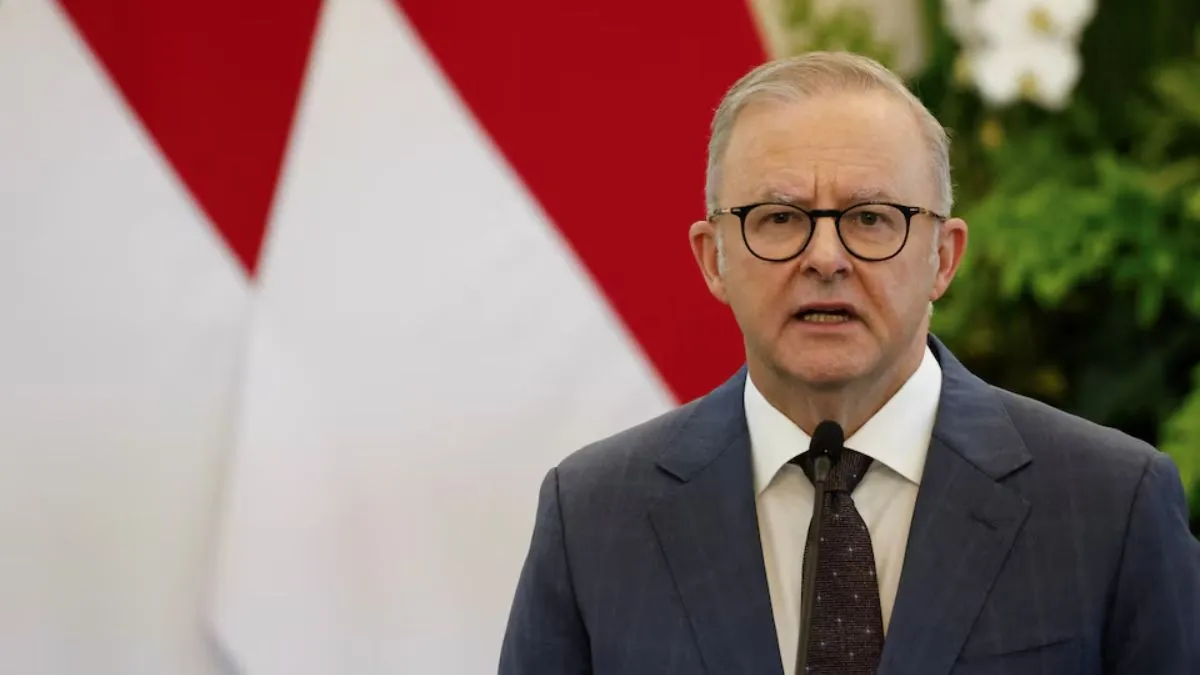Australia recognises Palestine: In a major shift in global diplomacy, Australia has announced plans to formally recognise the State of Palestine at the upcoming United Nations General Assembly (UNGA) session in September. The move, which will place Australia alongside more than 140 nations that already recognise Palestinian statehood, comes amid mounting global pressure to end the Gaza war and revive the two-state solution. Australian Prime Minister Anthony Albanese on Monday confirmed that Canberra will formally recognize a Palestinian state in September, stating the move is “predicated on commitments” by the Palestinian Authority.
Addressing the media after a Cabinet meeting, Albanese indicated that those commitments involved keeping Hamas out of government, demilitarization of Gaza, and conducting democratic elections. “A two-state solution is the best hope for humanity to stop the cycle of violence in the Middle East and to end the conflict, suffering and starvation in Gaza,” Albanese said. He also criticized Israeli Prime Minister Benjamin Netanyahu’s newly declared plans for a new military campaign in Gaza, saying that the attack would exacerbate the humanitarian cost.
UK Gives September Deadline Unless Israel Moves
UK Prime Minister Keir Starmer shared a similar opinion, stating that Britain would recognise Palestine by September if Israel agrees to a ceasefire and makes concrete moves toward peace. “This is the moment to act,” Starmer said from 10 Downing Street, stressing that the recognition would be part of a renewed push for a two-state solution. He outlined conditions under which the UK might delay the decision, including ending hostilities in Gaza, halting plans to annex the West Bank, and committing to a long-term peace process. Starmer issued a stern notice to Hamas as well, demanding the release of hostages, disarmament, and the exclusion of the group from any future Gaza governance. His government recalled the Cabinet from summer recess to coordinate peace talks with European allies and step up humanitarian aid to the besieged territory.
France Leads The Diplomatic Charge
In a historic step last week, French President Emmanuel Macron stated that France is going to officially recognize Palestine in the UNGA, becoming the largest Western power to do so to date. Writing on social networking site X, Macron stated, “The urgent thing today is that the Gaza war ceases and the civilian population is evacuated. Due to its historic commitment to a lasting and fair peace in the Middle East, I have decided that France will recognise the state of Palestine.” The Palestinian Authority has hailed the French move, with senior PLO official Hussein Al Sheikh labeling it as “a commitment to international law and support for the Palestinian people’s right to self-determination.”
Israel And US Strongly Oppose Moves
Israel denounced these announcements, with Netanyahu threatening that recognition at this time would “reward terror” and establish “another Iranian satellite” in the area. Deputy Prime Minister Yariv Levin labeled the French move “a black mark on French history. The United States also turned down the recognition gestures. US Secretary of State Marco Rubio termed Macron’s action “reckless” and “a slap in the face to the victims of October 7th,” charging it with supporting propaganda for Hamas.
ALSO READ: Israel-Palestine Conflict: How UN’s Two-State Solution Can Bring Peace In The Middle East?
Though more than 140 nations already acknowledge Palestine, this is a symbolic recognition without immediate jurisdiction over land, borders, or security. Decades of Israeli military occupation, the growth of settlements, and the blockade of Gaza have shattered Palestinian sovereignty. DW spoke with Middle East analyst Philip Leech-Ngo, who said that recognition “sends a clear political message that the Palestinian cause is legitimate” and can be a boost to international legal efforts against the occupation.
ALSO READ: France Becomes Largest Western Power To Recognise Palestine As State: What It Means For Israel, Hamas, And Peace Talks
The decisions of Australia, the UK, and France have put further pressure on other Western countries, such as Germany, to do the same. The September UNGA meeting should become a turning point in the Israel-Palestine conflict, with increasing demands for a ceasefire and a new peace process. But for most Palestinians, recognition by itself will not break the siege, stop the expansion of settlements, or secure the right of return of refugees. Whether this latest wave of diplomatic acceptance will translate to real change or become another mirage of unkept promises is uncertain as the war reaches its 76th year.
